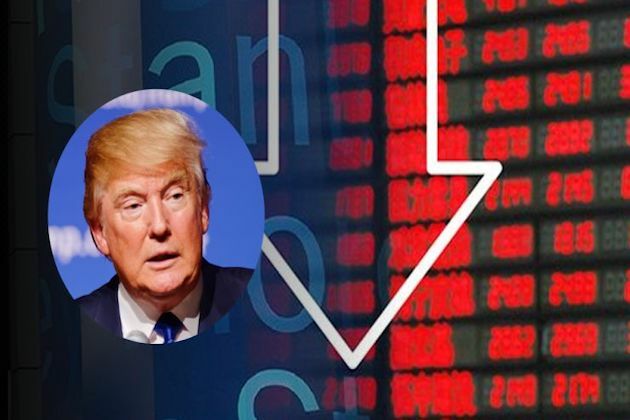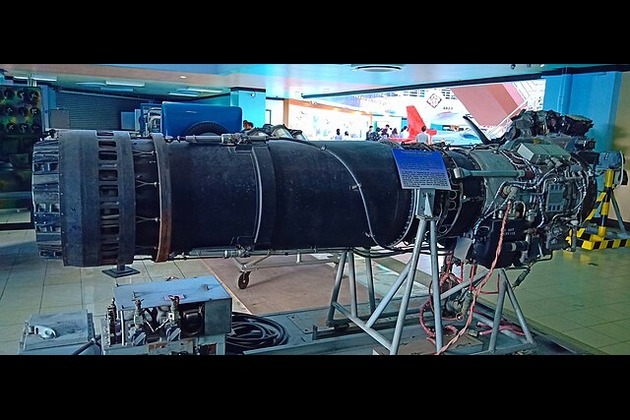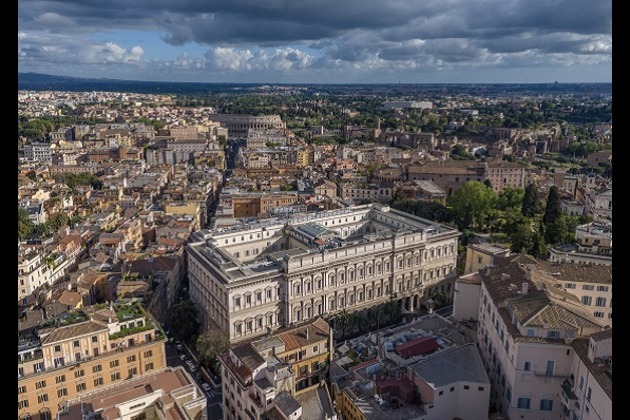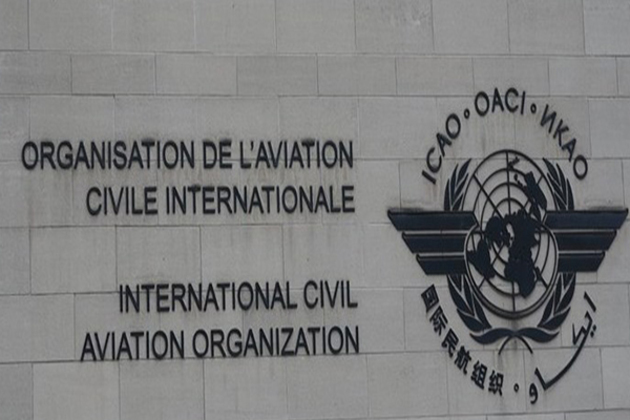Calls to designate the Bishnoi gang a terrorist group shine a spotlight on Canada's security laws
The Conversation
08 Jul 2025, 13:31 GMT+10
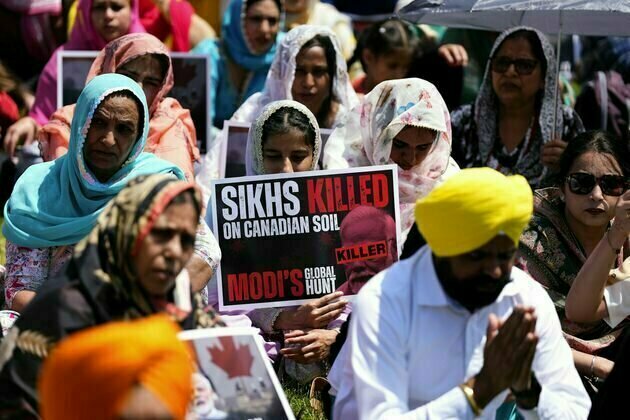
British Columbia Premier David Eby recently called on Prime Minister Mark Carney to designate the India-based Bishnoi gang a terrorist organization.
Brampton Mayor Patrick Brown echoed the request days later. The RCMP has also alleged the gang may be targeting pro-Khalistan activists in Canada.
These claims follow a series of high-profile incidents in India linked to the Bishnoi network, including the murder of a Punjabi rapper in New Delhi, threats against a Bollywood actor and the killing of a Mumbai politician in late 2024.
Eby's request raises broader legal questions. What does it mean to label a group a terrorist organization in Canada and what happens once that label is applied?
Under Section 83.05 of the Criminal Code, the federal government can designate an entity a terrorist organization if there are "reasonable grounds to believe" it has engaged in, supported or facilitated terrorist activity. The term "entity" is defined broadly, covering individuals, groups, partnerships and unincorporated associations.
The process begins with intelligence and law enforcement reports submitted to the public safety minister, who may then recommend listing the group to cabinet if it's believed the legal threshold is met. If cabinet agrees, the group is officially designated a terrorist organization.
A designation carries serious consequences: assets can be frozen and financial dealings become criminalized. Banks and other institutions are protected from liability if they refuse to engage with the group. Essentially, the designation cuts the group off from economic and civic life, often without prior notice or public hearing.
As of July 2025, Canada has listed 86 entities, from the Islamic Revolutionary Guard Corps to far-right and nationalist organizations. In February, the government added seven violent criminal groups from Latin America, including the Sinaloa cartel and La Mara Salvatrucha, known as the MS-13.
This marked a turning point: for the first time, Canada extended terrorism designations beyond ideological or political movements to include transnational criminal networks.
This shift reflects a deeper redefinition of what Canada considers a national security threat. For much of the post-9/11 era, counterterrorism efforts in Canada have concentrated on groups tied to ideological, religious or political agendas - most often framed through the lens of Islamic terrorism.
This has determined not only who is targeted, but also what forms of violence are taken seriously as national security concerns.
That is why the recent expansion of terrorism designations - first with the listing of Mexican cartels in early 2025, and now potentially with the Bishnoi gang - feels so significant.
It signals a shift away from targeting ideology alone and toward labelling profit-driven organized crime as terrorism. While transnational gangs may pose serious public safety risks, designating them terrorist organizations could erode the legal and political boundaries that once separated counterterrorism initiatives from criminal law.
Canada's terrorism listing process only adds to these concerns. The decision is made by cabinet, based on secret intelligence, with no obligation to inform the group or offer a chance to respond. Most of the evidence remains hidden, even from the courts.
While judicial review is technically possible, it is limited, opaque and rarely successful.
In effect, the label becomes final. It brings serious legal consequences like asset freezes, criminal charges and immigration bans. But the informal fallout can be just as harsh: banks shut down accounts, landlords back out of leases, employers cut ties. Even without a trial or conviction, the stigma of being associated with a listed group can dramatically change someone's life.
Using terrorism laws to go after violent criminal networks like the Bishnoi gang may seem justified. But it quietly expands powers that were originally designed for specific types of threats. It also stretches a national security framework already tainted by racial and political bias.
Read more: Canadian law enforcement agencies continue to target Muslims
For more than two decades, Canada's counterterrorism laws have disproportionately targeted Muslim and racialized communities under a logic of pre-emptive suspicion. Applying those same powers to organized crime, especially when it impacts immigrant and diaspora communities, risks reproducing that harm under a different label.
Canadians should be asking: what happens when tools built for exceptional threats become the default response to complex criminal violence?
As the federal government considers whether to label the Bishnoi gang a terrorist organization, the real question goes beyond whether the group meets the legal test. It's about what kind of legal logic Canada is endorsing.
Terrorism designations carry sweeping powers, with little oversight and lasting consequences. Extending those powers to organized crime might appear pragmatic, but it risks normalizing a process that has long operated in the shadows, shaped by secrecy and executive discretion.
As national security law expands, Canadians should ask not just who gets listed, but how those decisions are made and what broader political agendas they might serve.
 Share
Share
 Tweet
Tweet
 Share
Share
 Flip
Flip
 Email
Email
Watch latest videos
Subscribe and Follow
Get a daily dose of Toronto Telegraph news through our daily email, its complimentary and keeps you fully up to date with world and business news as well.
News RELEASES
Publish news of your business, community or sports group, personnel appointments, major event and more by submitting a news release to Toronto Telegraph.
More InformationBusiness
SectionBirkenstock steps up legal battle over fakes in India
NEW DELHI, India: Birkenstock is stepping up its efforts to protect its iconic sandals in India, as local legal representatives conducted...
Beijing hits back at EU with medical device import curbs
HONG KONG: China has fired back at the European Union in an escalating trade dispute by imposing new restrictions on medical device...
Wall Street reels after Trump invokes new tariffs
NEW YORK, New York - Monday's trading session saw mixed performances across U.S. and global markets, with several major indices posting...
Trump admin allows GE to restart engine sales to China’s COMAC
WASHINGTON, D.C.: The U.S. government has granted GE Aerospace permission to resume jet engine shipments to China's COMAC, a person...
Saudi Aramco plans asset sales to raise billions, say sources
DUBAI, U.A.E.: Saudi Aramco is exploring asset sales as part of a broader push to unlock capital, with gas-fired power plants among...
Russia among 4 systemic risk countries for Italian banks
MILAN, Italy: Italian regulators have flagged four non-EU countries—including Russia—as carrying systemic financial risk for domestic...
Canada
SectionTaiwan accuses China of endangering aviation safety with illegal flight corridor
Taipei [Taiwan], July 8 (ANI): Taiwan plans to ask its diplomatic partners and friendly nations to bring up China's unilateral launch...
Cancellations at Canadian film festivals raise questions about accountability
Film festivals are unique cultural institutions, spaces to see diverse films by local and global filmmakers and an important market...
Calls to designate the Bishnoi gang a terrorist group shine a spotlight on Canada's security laws
British Columbia Premier David Eby recently called on Prime Minister Mark Carney to designate the India-based Bishnoi gang a terrorist...
White Sox hope to put an end to Blue Jays' winning streak
(Photo credit: Kamil Krzaczynski-Imagn Images) A common refrain during the Toronto Blue Jays' best winning streak in a decade has...
MLB roundup: Guardians top Astros to halt 10-game skid
(Photo credit: Thomas Shea-Imagn Images) Brayan Rocchio lined a go-ahead, two-run double into the left field corner with two outs...
Blue Jays run winning streak to nine by beating White Sox
(Photo credit: Matt Marton-Imagn Images) Joey Loperfido, Nathan Lukes and Addison Barger homered and Jose Berrios pitched six strong...



